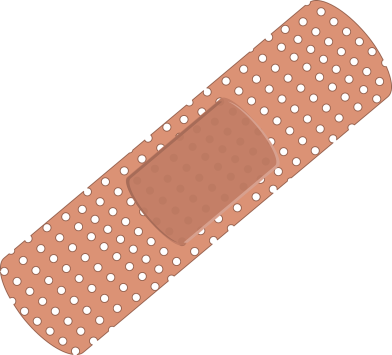
Hi. My name is Sonya and I have behavioral and psychological symptoms of Sonya (BPSS). Yes, it is true. You see, sometimes when I am doing something I don’t want to do, I get agitated. And then there are the times when I am tired or not interested and I have apathy. The other day I was combative when my husband tried to feed me a strawberry and I pushed his hand away (I really do not like being fed by others, although I really like strawberries.). I irritably yelled at my computer for several minutes this morning when I read the headlines. I am anxious any time I have to drive in this heavily congested area. Unfortunately, I also am paranoid. I KNOW that my husband took the car keys and hid them from me.
Maybe you are saying, “Sonya, what are you talking about? BPSS? Why can’t you just say you are angry or anxious? Why the labels? You are so weird.”
Maybe you are also wondering to yourself whether you have some form of BPSS. “I get angry too”, you might be saying to yourself. In fact, you are getting more angry and anxious as you read this. “Sonya, where are you going with this?” you are thinking nervously.
Have you noticed that we take actions of a person with dementia and ab-normalize and medicalize them? I have.
There is a term, called Behavioral and Psychological Symptoms of Dementia (BPSD) that is used to describe the following “symptoms” that occur in people with dementia: agitation, aberrant motor behavior, anxiety, elation, irritability, depression, apathy, disinhibition, delusions, hallucinations, and sleep or appetite changes.
A 2012 study¹ said that 90% of people with dementia have BPSD. Hmm. What percentage of the general population has BPSD? 100%?
![]()
I experience these symptoms and as far as I know, I do not have dementia. So, if I have them, and you have them, what are they symptoms of? Maybe of being human? So, because I do not have dementia, they must be Behavioral and Psychological Symptoms of Sonya. And if we are going to describe them that way for people with dementia, it is only fair that I describe them this way for myself.
Note: For the purposes of this article, I will refer to these “symptoms” instead as actions or expressions.
In everyday life we use these terms to describe our actions. They are, for the most part, considered “normal”. Yet, we seem to have a double standard when we are talking about people with dementia.
A person without dementia might be angry because he does not want to wake up. But a person with dementia is agitated when he does not want to wake up.
A person without dementia flirts with the waiter and it is just flirting. A person with dementia flirts with the waiter and she is disinhibited.
I am in no way minimizing the seriousness of these expressions/actions. These expressions are very distressful for both people with dementia and those who care for them. They are very real. But I want to suggest that they are not abnormal. They are human responses.
Being with many people living with dementia, and those who care for them, has taught me that living with dementia is very, very hard. People with dementia are doing the best they can. They are trying their best to make sense of everything and everyone around them. Because they are human, of course they are going to experience the same human emotions as any of us. If not more, because of the challenges of living with dementia. Their actions are expressions. Normal, human expressions to what are often experienced by them as abnormal situations. I have sat with many of these humans, and heard their experiences. They made me change the way I thought about their “behaviors”.
For these reasons, and more, we need to reconsider this term of BPSD. Perhaps more importantly, we need to think about the meaning behind it.
I understand why we use this term. We needed a way of describing some things we were seeing, so we created a term. But there is a danger in this term that is bigger than these words, I am afraid. Because a term is often, if not always, a reflection of a paradigm.
When we define these actions and expressions as symptoms, we do several things:
- When we describe these expressions as symptoms, we medicalize them. We also then frame them as “abnormal”.

- We are suggesting that the only explanation for them is the underlying medical condition of dementia. Then we are less inclined to try to understand the reasons behind these actions. They are “just what people with dementia do”. When we don’t understand the reasons, or what people are communicating to us through their actions, we are not able to meet their needs.
- When we medicalize expressions that might be normal for the person and his or her situation, although abnormal to us, we also contribute to a paradigm that sees people with dementia as different than us. Because WE certainly don’t ever have those expressions, but people with dementia do because of their dementia. A very concerning possible consequence of seeing people as different than us, “othering” them, is de-humanizing them.
- When we frame expressions in medical terms, as a medical problem, the next step is to try to address them with medical solutions. This might mean using antipsychotics unnecessarily.
- To take this a step further, when we frame these expressions in medical terms, even if we are looking for non-medical ways of addressing them, we still see them as medical problems to be addressed by these “non-pharmacological” solutions. The challenge with this is that we are still limiting ourselves to seeing these expressions through a medical lens, rather than trying to understand what they might mean for that person, and trying to address the underlying reasons behind the expressions, whether they be unmet needs, or emotional distress. Even a non-pharmacological solution can be a band-aid and not address the reason behind a person’s action and what it means.

We are already seeing ramifications of this paradigm in how we view and treat people with dementia. One of these areas is in the use of antipsychotic medications, which are used to address BPSD in people with dementia. A recent report by Human Rights Watch reiterated the overuse of antipsychotics for people with dementia. The article pointed out various possible reasons for overuse. Unfortunately, they are not untrue. Not having enough staff and training to meet the needs of people with dementia is unfortunately real in too many cases. In some cases, these medications are used for convenience. However, in my experience, I think it is more often due to people not knowing how else to respond.
Yet, I think it is something much bigger. It is a reflection of this paradigm of dementia – the story of dementia that we have told ourselves for too long. This is the story that tells us that the way people with dementia act are symptoms or “behaviors”. The story tells us that not only are behaviors bad, they are not normal. Because they are abnormal medical problems, we need to address them with medication.
However, what we are neglecting in this story is this – the way people act, i.e. behaviors, are not abnormal for them. In many cases they are perfectly normal responses to how a person is experiencing the world around him or her. They are an expression of what a person is experiencing, what she or he is telling us, and what needs we might not be meeting for a person.

Yes, it is true that there are changes in the brain that happen as a result of various types of dementia that influence the way a person acts. Parts of the brain that regulate emotions are affected, making it more difficult to control various emotions. There are indeed various part of the brain that cause a person with dementia to see and experience the world differently. So yes, dementia changes the way we might act.
I am also not dismissing the intent behind terminology such as BPSD – to attempt to understand and help people with dementia.
It is for all these reasons that we have to think differently. There is too much at stake, and we want and need to do better for people with dementia.
This term of BPSD can perpetuate a paradigm of dementia that does not honor the human experience of dementia. Who people are as individuals. What they need. What is important to them.
It is time for a new paradigm. One that sees people with dementia as no different than us. That strives to see things from the perspectives of people with dementia so we can find better ways to support them. A paradigm that truly sees people with dementia as whole, not broken. And one part of building a new paradigm is to critically and respectfully question how we are describing and thinking about the way people with dementia act.
Note: I am well aware that I am not alone in this desire to change the paradigm of dementia. I am being heard here, with my own voice, but know that there are many who are in this together. They are people living with dementia, their care partners, and people whose professional lives are dedicated to making life better for people with dementia. I learn from them every day. Rather than speak for all of you, I hope you will chime in, as much more needs to be said.

Sonya-
WOW- what a powerful blog posting this was. This is such a great message. I’m going to forward this to lots of my other colleagues- who use the BPSD term a lot (they are all clinical psychologists)- It will be interesting to see what they think
You ROCK girl!
Maggie
PLEASE NOTE NEW ADDRESS effective January 1, 2018
Margaret Calkins, PhD, EDAC
Board Chair, IDEAS Institute
38929 Berkeley Ave.
Moreland Hills OH 44022
440-600-7055 (h)
216-509-3609 (c)
http://www.IDEASInstitute.org
LikeLike
Thanks, Maggie! Yes, let’s keep the conversation going! (You rock, too, by the way.)
LikeLike
Hi Sonya,
Great piece.
I would like to see us do a lot more than “chime in.” I would like to see those of us who know BPSD are essentially BS take concrete steps to get the term deleted from the dementia care space. I have been working hard on this for two years because:
and:
Here is some of the work I’ve done:
Please feel free to contact me anytime if you would like to collaborate.
Thanks for your good work.
Susan
LikeLike
Susan! I love it when we find each other. I am looking forward to going through your stuff. Thank you!
LikeLiked by 1 person